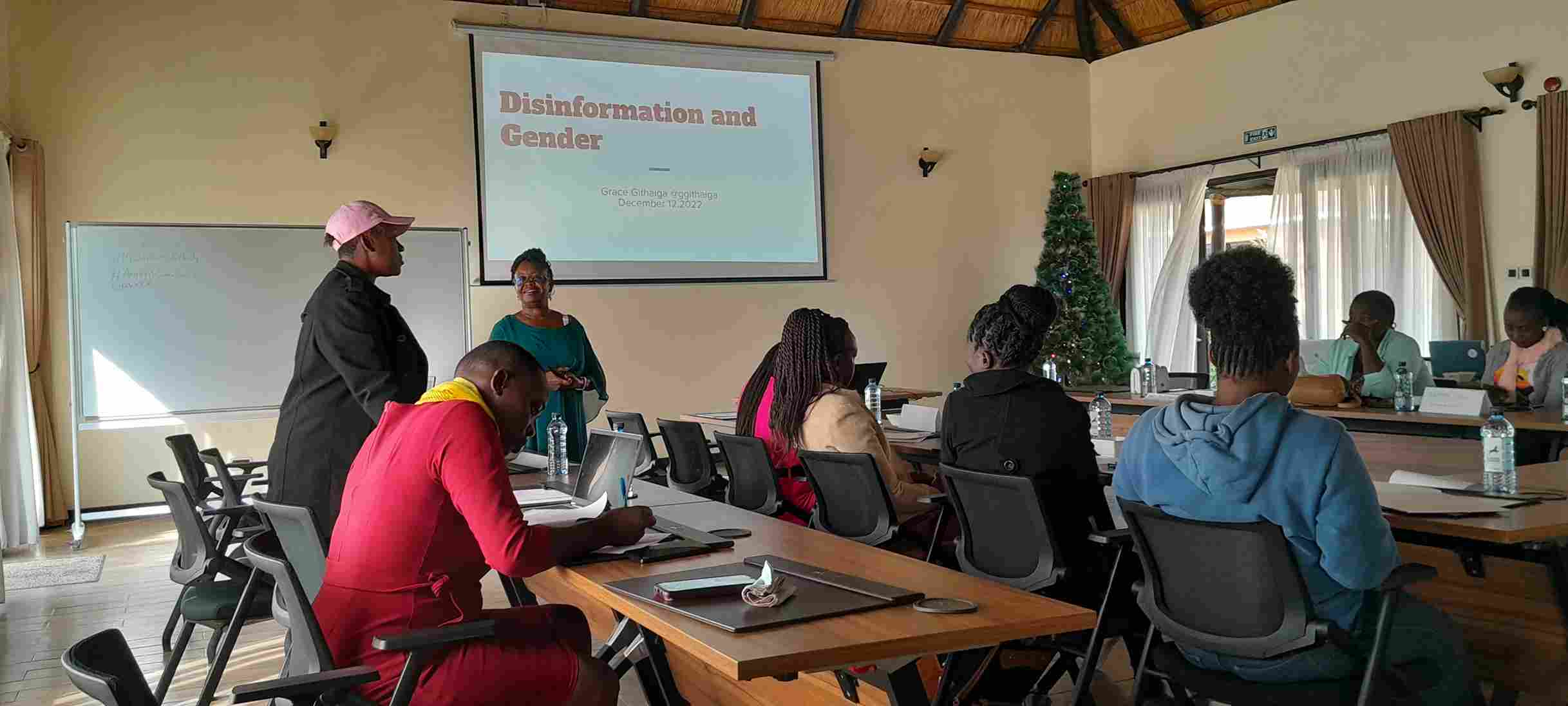Kenya has made significant gains in information and communication technology (ICT). However, there needs to be more in the inclusion of women and the full use of the internet for social, political, and economic development.
In rural areas, most women face deliberate gender discrimination, inadequate infrastructure, skills, and financial restraints. Their slow adoption of technology is also a result of their ignorance of how it might improve their lives.
The International Association of Women in Radio and Television (IWART) organized a one-day workshop for female journalists from Bungoma and Kakamega counties on December 12, 2022, to enhance their capacity and knowledge levels.
The Kenya ICT Action Network (KICTANet) conducted some of the sessions, where participants disclosed that they unintentionally reinforce gender stereotypes that portray women as the weaker sex.
Ms. Grace Githaiga, CEO and Convenor of KICTANet, acknowledged that the media could strategically amplify and bring women’s voices to digital platforms.
“Disinformation undermines human rights and many elements of good quality democracy” @ggithaiga to female journalists in Bungoma #MediaWomenAndTech #AmplifyWomenVoices @APC_News @IawrtK @KICTANet @josebigg pic.twitter.com/4b1T3NOFOS
— Racheal Nakitare (@nakitare) December 12, 2022
How do we ensure women and girls’ social and economic advancements towards gender equality?
Participants were able to share strategies on how they could boost women’s voices; key among them include:
Raising the profile of female leaders in finance, economy, politics and business journalism to address gender bias in the fields and communities directly.
The media has a significant impact on how the public perceives it. Therefore any gender stereotyping-no matter how subtle- has negative repercussions.
What we think, believe and do are all influenced by the media. Therefore, the choices made by those who work in and lead the industry are crucial.
Ongoing group deliberations at the training of Bungoma county female journalists on Media Women in Technology .#MediaWomenAndTech #AmplifyWomenVoices@NeemaMasitsa @ggithaiga @KICTANet @nakitare @jnangila @marvinmwavita pic.twitter.com/EO1dXwni0w
— IAWRT-Kenya (@IawrtK) December 12, 2022
The media perpetuates and reinforces gender inequality when it fails to portray women as equal and stereotypes them in their professions, social roles, and personal characteristics.
The fifth module of the Digital Enquire Kit, an e-learning course that guides learners through lessons, contains practical steps to tackle online gender-based violence and digital security tips to keep one safe online.
Ms Neema Mujesia, a communication department intern who is also working on the gender and digital rights program, took the participants through the module, focusing on the target audience, types, advice, and techniques to help them distinguish between hate speech and free speech in OGBV.
Ms Racheal Nakitare, a seasoned broadcast journalist and a former president of IAWART, urged the journalists to gain more exposure, particularly in technology.
She encouraged them to use the internet to support public policy development and amplify women’s voices on issues that concern them, such as gender-based violence, economic development, and human rights.
This is a series of Blogs on gender issues.
____________________________________________________
Neema Mujesia is a Media Science graduate from Moi University. @neemamasitsa.
![]()




